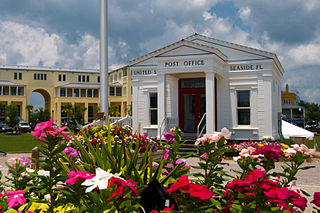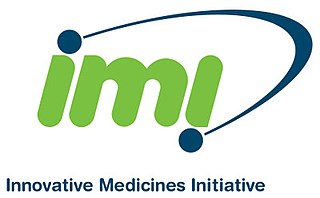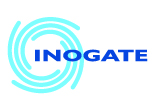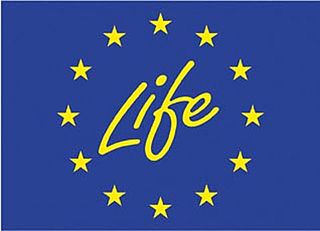This article needs additional citations for verification .(February 2021) |
CIVITAS is an initiative of the European Union to implement sustainable, clean and (energy) efficient urban transport measures. The initiative is co-ordinated by cities.
This article needs additional citations for verification .(February 2021) |
CIVITAS is an initiative of the European Union to implement sustainable, clean and (energy) efficient urban transport measures. The initiative is co-ordinated by cities.
CIVITAS is an acronym of CIty-VITAlity-Sustainability. [1]

New Urbanism is an urban design movement that promotes environmentally friendly habits by creating walkable neighbourhoods containing a wide range of housing and job types. It arose in the United States in the early 1980s, and has gradually influenced many aspects of real estate development, urban planning, and municipal land-use strategies. New Urbanism attempts to address the ills associated with urban sprawl and post-Second World War suburban development.

Indian Institute of Management Lucknow is a public business school in Lucknow, Uttar Pradesh, India. It was established in 1984 as the fourth Indian Institute of Management (IIM) by the Government of India. IIM Lucknow offers post-graduate diploma, fellowship and executive programs in management. It is recognised as an "Institution of Excellence" by India's Ministry of Human Resource Development. IIM Lucknow also serves as the mentor institution for the newly established IIM Jammu, IIM Rohtak and IIM Kashipur. It also served as a mentor institute to IIM Sirmaur till 2018.

The European Structural and Investment Funds are financial tools governed by a common rulebook, set up to implement the regional policy of the European Union, as well as the structural policy pillars of the Common Agricultural Policy and the Common Fisheries Policy. They aim to reduce regional disparities in income, wealth and opportunities. Europe's poorer regions receive most of the support, but all European regions are eligible for funding under the policy's various funds and programmes. The current framework is set for a period of seven years, from 2021 to 2027.
The Framework Programmes for Research and Technological Development, also called Framework Programmes or abbreviated FP1 to FP9, are funding programmes created by the European Union/European Commission to support and foster research in the European Research Area (ERA). Starting in 2014, the funding programmes were named Horizon.
The European Institute of Innovation and Technology (EIT) is an independent body of the European Union with juridical personality, established in 2008 intended to strengthen Europe's ability to innovate. The EIT’s three “core pillars” of activities are: entrepreneurial education programmes and courses across Europe that transform students into entrepreneurs; business creation and acceleration services that scale ideas and budding businesses; and innovation-driven research projects that turn ideas into products by connecting partners, investors, and expertise.

European Grid Infrastructure (EGI) is a series of efforts to provide access to high-throughput computing resources across Europe using grid computing techniques. The EGI links centres in different European countries to support international research in many scientific disciplines. Following a series of research projects such as DataGrid and Enabling Grids for E-sciencE, the EGI Foundation was formed in 2010 to sustain the services of EGI.

Copernicus is the Earth observation component of the European Union Space Programme, managed by the European Commission and implemented in partnership with the EU Member States, the European Space Agency (ESA), the European Organisation for the Exploitation of Meteorological Satellites (EUMETSAT), the European Centre for Medium-Range Weather Forecasts (ECMWF), the Joint Research Centre (JRC), the European Environment Agency (EEA), the European Maritime Safety Agency (EMSA), Frontex, SatCen and Mercator Océan.
Interreg is a series of programmes to stimulate cooperation between regions in and out of the European Union (EU), funded by the European Regional Development Fund. The first Interreg started in 1989. Interreg IV covered the period 2007–2013. Interreg V (2014–2020) covers all 27 EU member states, the EFTA countries, six accession countries and 18 neighbouring countries. It has a budget of EUR 10.1 billion, which represents 2.8% of the total of the European Cohesion Policy budget. Since the non EU countries don't pay EU membership fee, they contribute directly to Interreg, not through ERDF.
The 2000-watt society is an environmental vision, first introduced in 1998 by the Swiss Federal Institute of Technology in Zürich, which pictures the average First World citizen reducing their overall average primary energy usage rate to no more than 2,000 watts by the year 2050, without lowering their standard of living.
The Energy Performance of Buildings Directive is the European Union's main legislative instrument aiming to promote the improvement of the energy performance of buildings within the European Union. It was inspired by the Kyoto Protocol which commits the EU and all its parties by setting binding emission reduction targets.

The Innovative Medicines Initiative (IMI) is a European initiative to improve the competitive situation of the European Union in the field of pharmaceutical research. The IMI is a joint initiative of the DG Research of the European Commission, representing the European Communities, and the European Federation of Pharmaceutical Industries and Associations (EFPIA). IMI is laid out as a Joint Technology Initiative within the Seventh Framework Programme. Michel Goldman was the first executive director, from September 2009 until December 2014.

Interstate Oil and Gas Transportation to Europe (INOGATE) was an international energy co-operation programme between the European Union (EU), the littoral states of the Black and Caspian seas and their neighbouring countries. The programme was operational from 1996 to 2016.

The Carnegie United Kingdom Trust is an independent, endowed charitable trust based in Scotland that operates throughout Great Britain and Ireland. Originally established with an endowment from Andrew Carnegie in his birthplace of Dunfermline, it is incorporated by a royal charter and shares purpose-built premises with the Carnegie Trust for the Universities of Scotland, the Carnegie Dunfermline Trust, and the Carnegie Hero Fund Trust.
The Covenant of Mayors is a European co-operation movement involving local and regional authorities. Signatories of the Covenant of Mayors voluntarily commit to increasing energy efficiency and the use of renewable energy sources on their territories. By their commitment, they support the European Union 20% CO2 reduction objective to be reached by 2020.

The LIFE programme is the European Union's funding instrument for the environment and climate action. The general objective of LIFE is to contribute to the implementation, updating and development of EU environmental and climate policy and legislation by co-financing projects with European added value. LIFE began in 1992 and to date there have been five phases of the programme. During this period, LIFE has co-financed some 4600 projects across the EU, with a total contribution of approximately 6.5 billion Euros to the protection of the environment and of climate. For the next phase of the programme (2021–2027) the European Commission proposed to raise the budget to 5.45 billion Euro.
Tzedek is a UK-based registered charity organisation which aims to provide a Jewish response to the problem of extreme global poverty. Registered as a charity in 1993, Tzedek has a number of overseas development programmes, working closely with local NGOs to alleviate extreme poverty in Northern Ghana and Northeast & Southeast India. As well as supporting local NGOs within these regions, Tzedek aims to develop the leadership skills of young Jewish leaders within the community to provide a long-term, sustainable solution to global poverty.

Berlin British School (BBS) is a private, international English-medium school for children aged 2 to 18, located in Charlottenburg, an affluent locality of Berlin, Germany.
Civita is a master-planned community in the Mission Valley area of the city of San Diego, San Diego County, United States. Located on a former quarry site, the urban-style, sustainable, transit-oriented 230-acre (93 ha) village is organized around a 14.3-acre (5.8 ha) community park that cascades down the terraced property.

The Centre for Digital Built Britain (CDBB) was a partnership between the University of Cambridge and UK's Department for Business, Energy and Industry Strategy. The CDBB was established in 2017 to support the transformation of the UK built environment using digital technologies to better design, build, maintain and integrate assets. Prior to its closure in March 2022, it was the home of the UK BIM programme, begun by the UK BIM Task Group (2011-2017), and the National Digital Twin programme.

The Directorate-General for Defence Industry and Space is a department of the European Commission.